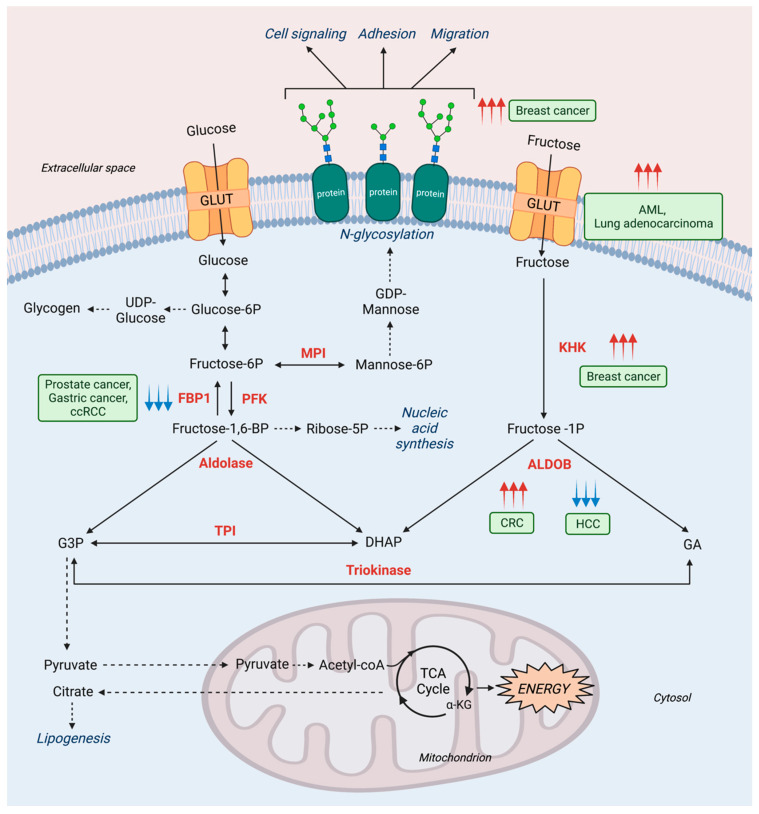Figure 3.
Fructose metabolism in cancer. Cancer cells reprogram their metabolism to support the greater energy demand for cell growth and proliferation. Often, fructose can be used as an alternative fuel source in low glucose conditions. The ability of fructose to be metabolized through various pathways (i.e., glycolysis, gluconeogenesis, glycosylation, nucleic acid synthesis, lipogenesis) paves the way for a number of metabolic alterations to occur in cancer, which are shown in the diagram above. The upregulation of cell membrane transporters, such as GLUT, induce increased fructose metabolism. Furthermore, the altered expression of enzymes, such as KHK, FBP1, and ALDOB, contribute to substantial clinical presentation of tumor progression in cancers, such as breast, prostate, gastric, ccRCC, and CRC. Enzymes are shown in bold red, metabolites are black, pathway outcomes are italicized navy. Cancer types are shown in light green text boxes. Red and blue arrows are indicative of expression or activity being upregulated or downregulated, respectively. Proteins: GLUT, Glucose transporter; FBP1, Fructose-1,6-bisphosphatase 1; PFK, Phosphofructokinase; TPI, Triose-phosphate isomerase; KHK, Ketohexokinase; ALDOB, Aldolase B; MPI: Mannose phosphate isomerase; Metabolites: αKG, Alpha-ketoglutarate; GA, Glyceraldehyde; DHAP, Dihydroxyacetone phosphate; Ribose-5P, Ribose-5-phosphate; Glucose-6P, Glucose-6-phosphate; UDP, Uridine diphosphate; Fructose-1P, Fructose-1-phosphate; Fructose-6P, Fructose-6-phosphate; Fructose-1,6-BP, Fructose-1,6-bisphosphate; Mannose-6P, Mannose-6-phosphate; GDP, Guanosine diphosphate; G3P, Glyceraldehyde-3-phosphate; Pathways: TCA, Tricarboxylic acid. Disease: CRC, Colorectal cancer; HCC, Hepatocellular carcinoma; ccRCC, Clear cell renal cell carcinoma; AML, Acute myeloid leukemia.

